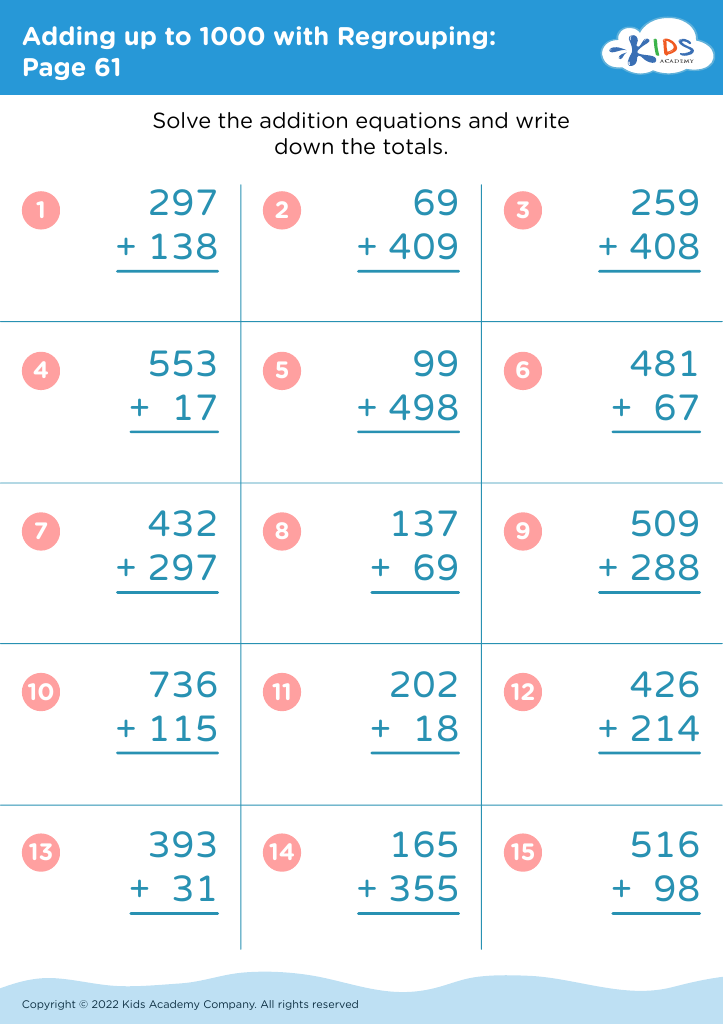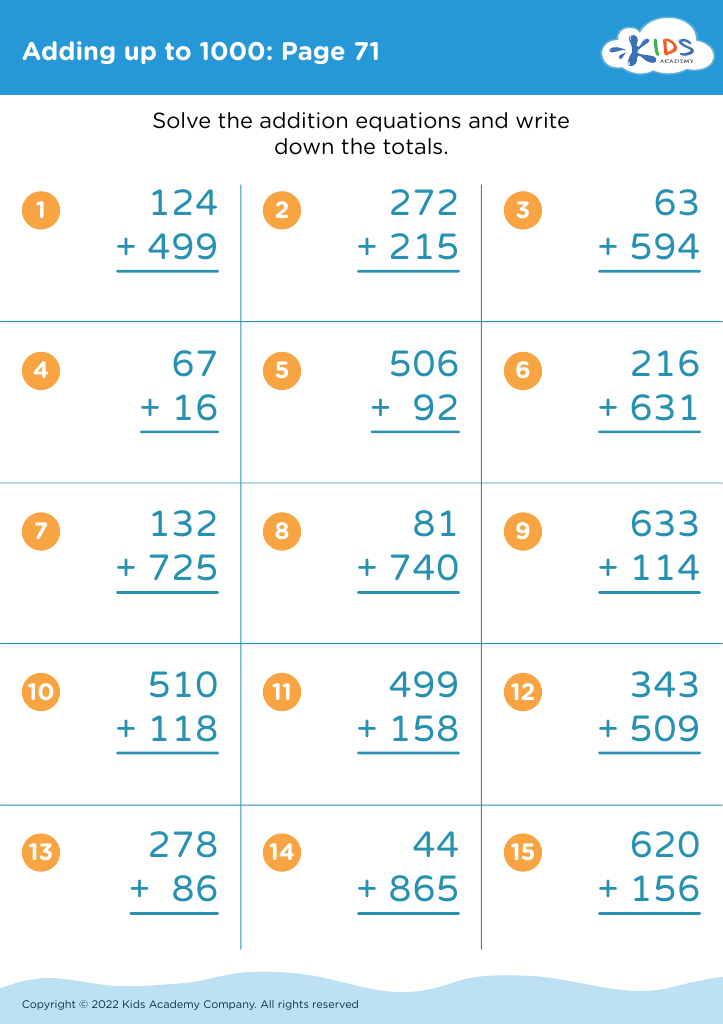Problem-solving abilities Adding up to 1000 Worksheets for Ages 6-7
5 filtered results
-
From - To
Boost your child’s problem-solving abilities with our targeted "Adding up to 1000 Worksheets" for ages 6-7! These engaging and interactive worksheets help young learners develop essential mathematical skills while having fun. Each activity is designed to enhance critical thinking, improve number sense, and promote analytical reasoning. As children tackle diverse problems related to addition and subtraction within 1000, they build confidence in their math abilities. With colorful illustrations and age-appropriate exercises, these worksheets make learning enjoyable and effective. Equip your young mathematicians with the skills they need to succeed in future challenges. Start exploring today and watch their problem-solving skills soar!
Problem-solving abilities are crucial for children aged 6-7 as they lay the foundation for critical thinking, decision making, and personal development. At this age, children are naturally curious and eager to explore their surroundings. Encouraging problem-solving helps them engage with challenges, nurturing their creativity and analytical skills.
This age group is often introduced to concepts like addition and subtraction, with the goal of solving mathematical problems that add up to 1000. Understanding how to apply these skills in context helps children grasp the relevance of mathematics in everyday life. When parents and teachers focus on problem-solving, they not only enhance academic capabilities but also boost children's confidence and motivation to learn.
Moreover, effective problem-solving equips youngsters with social skills. They learn collaboration through group activities and the significance of differing perspectives. As they grapple with various strategies to reach solutions, they develop resilience against failure, fostering a growth mindset.
In essence, cultivating problem-solving abilities in early learners propels them toward academic success and prepares them for future life's complexities. Parents and teachers play a pivotal role in fostering these skills, setting the stage for lifelong learners who can thrive in an ever-changing world.

















